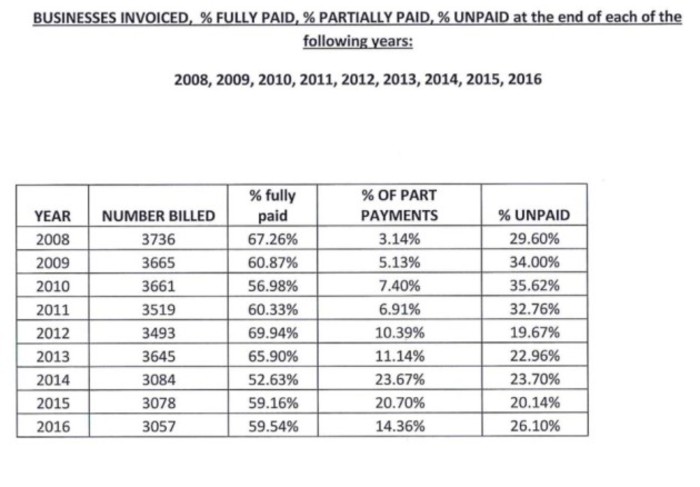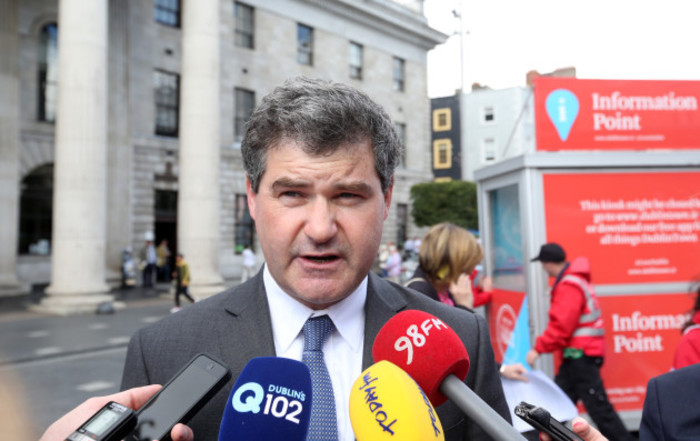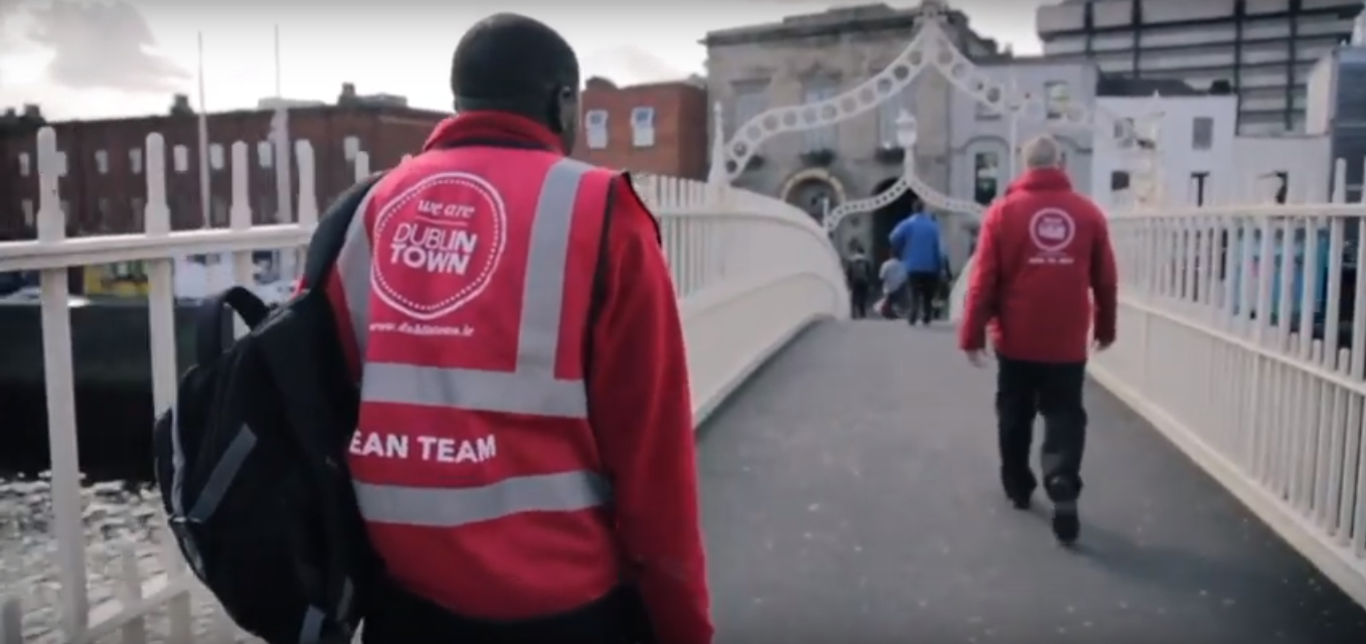Up to one-third of firms haven't been paying their Dublin Town bills on time
But the not-for-profit says 95% of its members eventually comply with the levy.
UP TO ONE-THIRD of all firms within the Dublin Business Improvement District (BID) haven’t paid the scheme’s annual fee by the end of each year, according to data released following a freedom of information request.
Dublin BID – marketed as Dublin Town – is responsible for representing and promoting businesses in the city centre. It provides services like graffiti cleaning and runs promotional events such as ‘Dine in Dublin’.
All businesses in the BID catchment area are automatic members of the scheme and must pay an annual levy equal to 5% of their commercial rates bill to support the running of the group.
In 2016 – the most recent year for which figures are available – more than €2.8 million was collected through the BID levy.
Last year, a group spearheaded by Restaurants Association of Ireland chief Adrian Cummins and independent councillor Mannix Flynn campaigned for the abolition of Dublin Town.
The ‘No to Bid’ group branded the BID levy a form of “double taxation”, a claim that Dublin Town has strongly rejected.
Data pursued by Cummins through the freedom of information (FOI) process shows that from 2008 to 2016, between 19% and 35% of Dublin Town invoices were unpaid by the end of each respective year. The remaining bills were either partially or fully paid.
The non- or late payment peaked during the recession, in 2011, however the rate remained at more than 26% in 2016. This decreased to around 21% last year.

Click here to view a larger version
But the group’s CEO, Richard Guiney, said the figures did not take into account firms that later settled bills in arrears or entered into payment plans with Dublin Town.
“Our contributions are registering over 95% of the amounts billed and payable. That’s a very good rate,” Guiney told Fora.
High Court
Last year, Adrian Cummins submitted an FOI request seeking the number of businesses invoiced by Dublin BID since it was established in 2008. He also requested a percentage breakdown of those that paid, partially paid or failed to pay their bills by the end of each year.
The original request was submitted to Dublin City Council, which invoices firms on behalf of Dublin Town, but was refused by the local authority.
The council’s refusal was later overturned by Ireland’s FOI appeals body, the Office of the Information Commissioner (OIC).
In January, Dublin Town launched High Court proceedings over the commissioner’s decision. The matter was settled out of court within a month.
Guiney said the group started legal proceedings because it took issue with certain aspects of the information commissioner’s decision, such as the money raised being described as being “public funds”. He said Dublin Town did not seek to block the release of the data.
 Dublin Town CEO Richard Guiney
Dublin Town CEO Richard Guiney
“It was very important for us to challenge those aspects, not the release of any information … We had no choice but to go to the High Court,” he said, adding that the matter was quickly resolved without the need for legal action.
When asked why Dublin Town objected to the original freedom of information request, Guiney said: “Being honest, I had a view that there would be a spin put by these people (No to BID) to suggest something that would not represent the reality.”
When asked whether Dublin Town spent any of its funding on legal costs, Guiney said it incurred “negligible amounts in terms of any fees”.
Cummins wasn’t available to comment at the time of publishing, but he told the Irish Times earlier this year that he had sought the data “in the interest of the public and because it’s dealing with a tax and how it’s levied on businesses, some of which are our members”.
The data was released to the Restaurants Association chief in a letter from Dublin City Council dated 15 March. On the same day, Dublin Town published the figures on its own website and provided additional statistics for 2017.
Every five years, companies in the Dublin BID area vote on whether or not to renew the scheme. The latest ballot was counted in July 2017.
Some 843 businesses voted to renew Dublin Town while 715 called for its abolition. Around 3,000 firms were eligible to vote.
A number of traders campaigned to scrap the initiative under the guise of the so-called ‘No to BID’ campaign group led by Cummins and Flynn.
As previously explained by this website, a bitter public row broke out ahead of the vote, with claims and counter-claims flying between the two camps.







